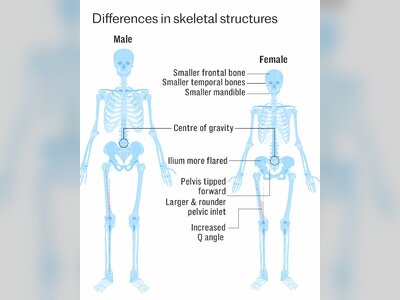
Thailand's Commitment to Wage Increase Amid Economic Stimulus Plans
Labour Minister Reaffirms Minimum Wage Plans as Government Targets Economic Growth with New Initiatives
Labour Minister Phiphat Ratchakitprakarn has expressed a firm commitment to raise the minimum wage to 400 baht across Thailand despite apprehensions regarding the implications for small and medium-sized enterprises (SMEs) and inflationary pressures.
A tripartite wage committee is scheduled to review this proposal on Wednesday, following previous delays on wage adjustments across all provinces.
In a parliamentary inquiry, Mr. Phiphat addressed concerns raised by Senator Tewarit Maneechai regarding the challenges facing the wage increase.
This proactive move is part of a response to three postponements of wage adjustments aimed at enhancing the income of workers nationwide.
The minister insists on using the wage adjustment framework from 2012 as a model, particularly emphasizing its application in the Bangkok Metropolitan area.
However, the wage committee and its respective subcommittees from 76 provinces determined that only four provinces—Phuket, Chachoengsao, Chon Buri, and Rayong—and the Samui district of Surat Thani could feasibly implement the 400-baht minimum wage starting on January 1, 2025.
Acknowledging the current wage disparity, Mr. Phiphat also recognized the potential adverse effects of the wage hike on SMEs, warning of significant economic repercussions.
He emphasized the importance of deliberation, while the tripartite wage committee is expected to convene for a meeting, shortly before its term concludes, to discuss the matter further.
The minister expressed hope for a successful outcome but noted that if the wage increase is not approved in the initial meeting, a follow-up meeting could be arranged within a 15-day window.
To alleviate the financial burden resulting from the wage increase, the Labour Ministry is exploring measures such as tax deductions for businesses and reductions in employers' contributions to the Social Security Fund (SSF).
Previously, the ministry had identified 129 occupations eligible for the new minimum wage, leaving just 13 occupations still below this threshold.
In parallel, the Thai government is targeting a growth rate exceeding 3% for the year, backed by a substantial economic stimulus package valued at 150 billion baht.
This initiative is aimed at invigorating the economy, which has faced challenges in the aftermath of the pandemic.
Finance Ministry officials have outlined plans to bolster this growth through various measures, including an advanced phase of the 'digital wallet' scheme, aiming to distribute financial aid of 10,000 baht to approximately 45 million citizens.
As part of the strategy, the government anticipates that these efforts will uplift consumption levels, despite historical trends showing some handouts have been utilized for debt repayments rather than direct spending.
The 'digital wallet' scheme is projected to commence in the second quarter, targeting financial assistance for youth aged 16-20 via a mobile application.
Additionally, Thailand's Deputy Finance Minister Paopoom Rojanasakul revealed plans for tax incentives related to the manufacturing of plug-in hybrid vehicles, with new regulations expected to take effect from 2026. This proposal aims to tax vehicles based on their battery range, with lower taxes encouraging longer travel capabilities.
Amidst these developments, Thailand's automotive sector is grappling with a downturn, having recorded a significant drop in production and sales in the previous year.
The government’s initiatives are intended to rekindle the automotive industry, which constitutes approximately 10% of the nation's GDP, and includes discussions with Japanese manufacturers for potential trade-in programs.
A tripartite wage committee is scheduled to review this proposal on Wednesday, following previous delays on wage adjustments across all provinces.
In a parliamentary inquiry, Mr. Phiphat addressed concerns raised by Senator Tewarit Maneechai regarding the challenges facing the wage increase.
This proactive move is part of a response to three postponements of wage adjustments aimed at enhancing the income of workers nationwide.
The minister insists on using the wage adjustment framework from 2012 as a model, particularly emphasizing its application in the Bangkok Metropolitan area.
However, the wage committee and its respective subcommittees from 76 provinces determined that only four provinces—Phuket, Chachoengsao, Chon Buri, and Rayong—and the Samui district of Surat Thani could feasibly implement the 400-baht minimum wage starting on January 1, 2025.
Acknowledging the current wage disparity, Mr. Phiphat also recognized the potential adverse effects of the wage hike on SMEs, warning of significant economic repercussions.
He emphasized the importance of deliberation, while the tripartite wage committee is expected to convene for a meeting, shortly before its term concludes, to discuss the matter further.
The minister expressed hope for a successful outcome but noted that if the wage increase is not approved in the initial meeting, a follow-up meeting could be arranged within a 15-day window.
To alleviate the financial burden resulting from the wage increase, the Labour Ministry is exploring measures such as tax deductions for businesses and reductions in employers' contributions to the Social Security Fund (SSF).
Previously, the ministry had identified 129 occupations eligible for the new minimum wage, leaving just 13 occupations still below this threshold.
In parallel, the Thai government is targeting a growth rate exceeding 3% for the year, backed by a substantial economic stimulus package valued at 150 billion baht.
This initiative is aimed at invigorating the economy, which has faced challenges in the aftermath of the pandemic.
Finance Ministry officials have outlined plans to bolster this growth through various measures, including an advanced phase of the 'digital wallet' scheme, aiming to distribute financial aid of 10,000 baht to approximately 45 million citizens.
As part of the strategy, the government anticipates that these efforts will uplift consumption levels, despite historical trends showing some handouts have been utilized for debt repayments rather than direct spending.
The 'digital wallet' scheme is projected to commence in the second quarter, targeting financial assistance for youth aged 16-20 via a mobile application.
Additionally, Thailand's Deputy Finance Minister Paopoom Rojanasakul revealed plans for tax incentives related to the manufacturing of plug-in hybrid vehicles, with new regulations expected to take effect from 2026. This proposal aims to tax vehicles based on their battery range, with lower taxes encouraging longer travel capabilities.
Amidst these developments, Thailand's automotive sector is grappling with a downturn, having recorded a significant drop in production and sales in the previous year.
The government’s initiatives are intended to rekindle the automotive industry, which constitutes approximately 10% of the nation's GDP, and includes discussions with Japanese manufacturers for potential trade-in programs.











